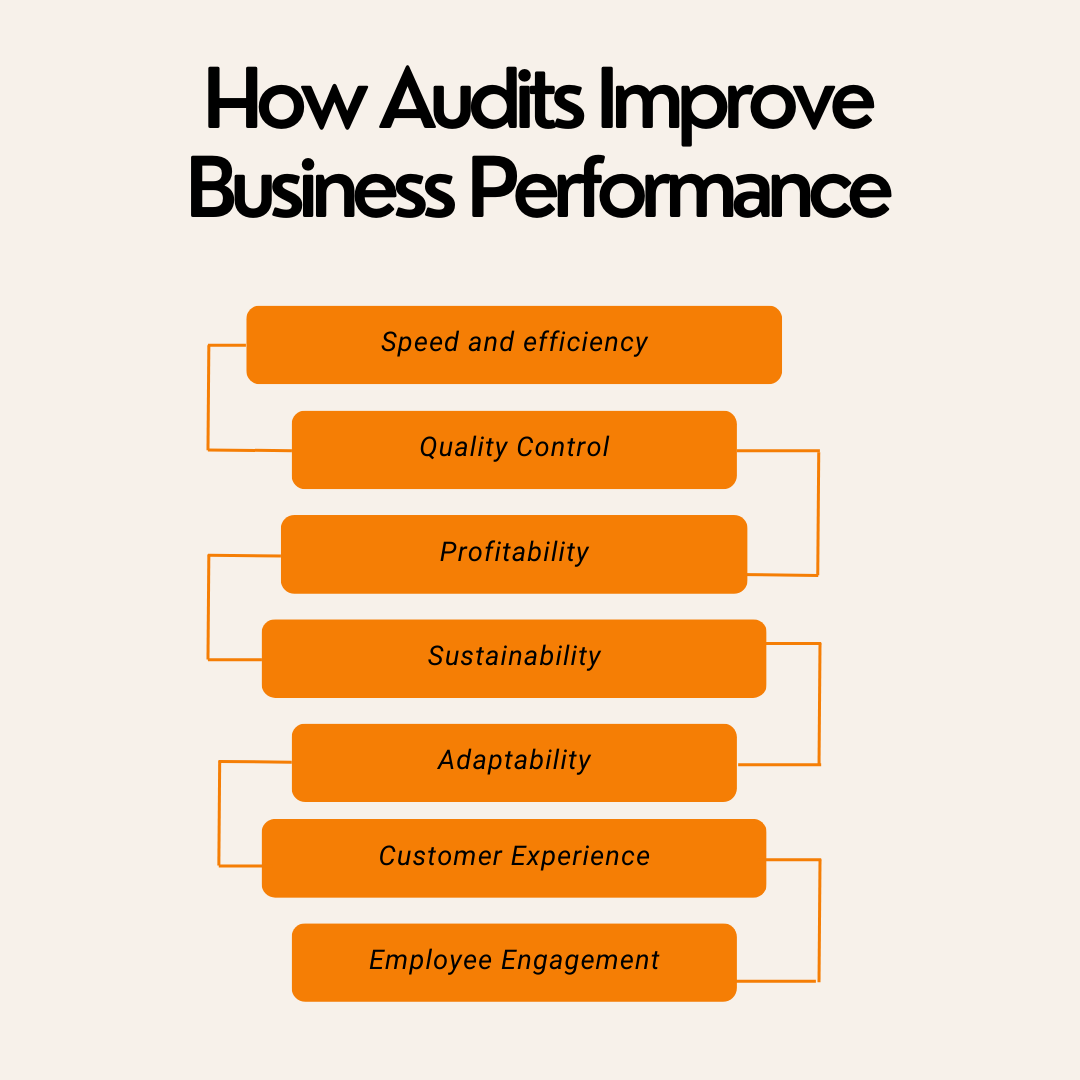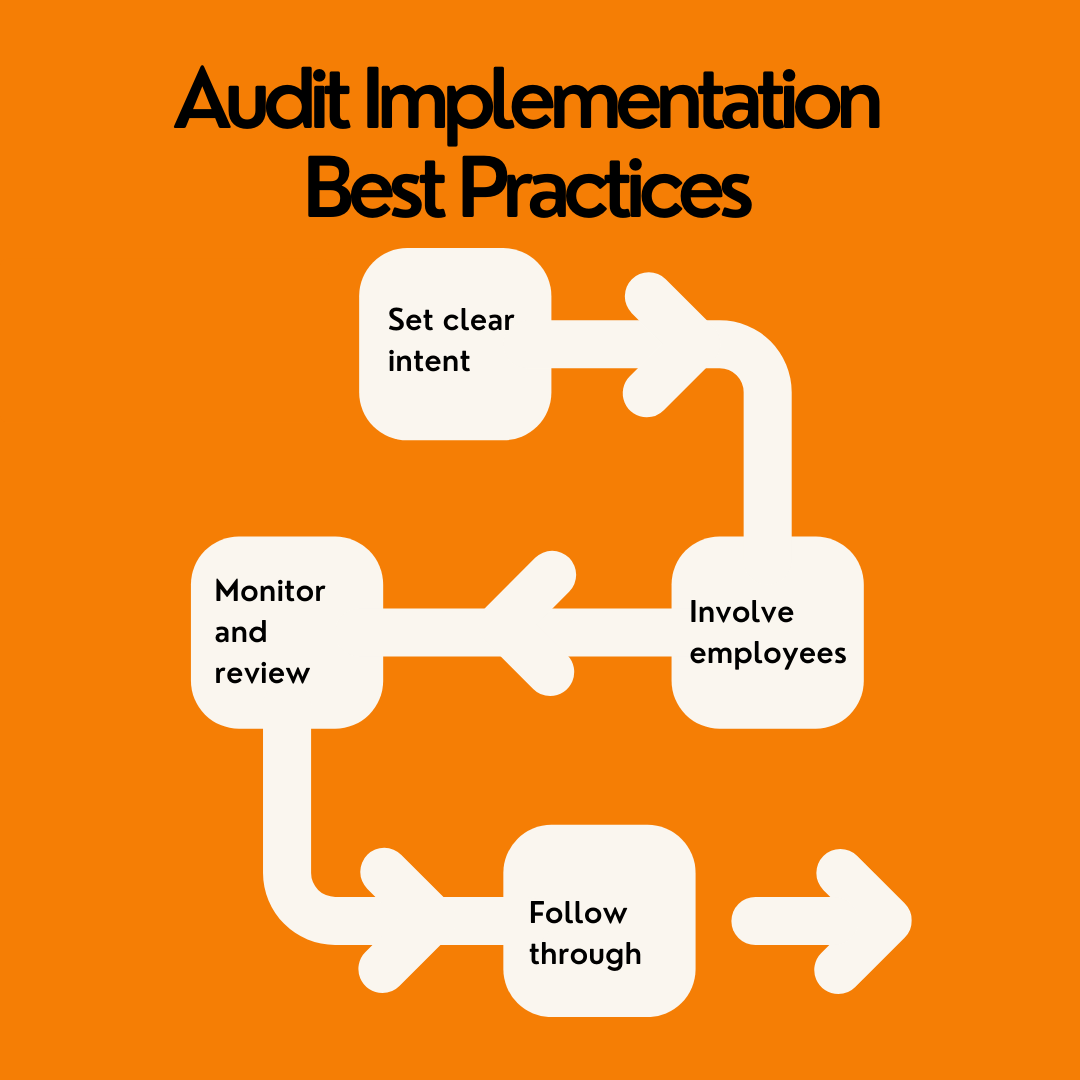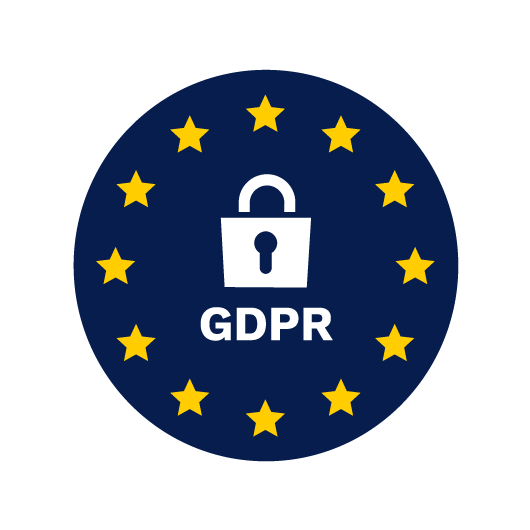How Audits Transform the Customer Experience (and 8 Other Common Business Outcomes)
Audits are crucial to delivering high-quality, reliable products and services to your customers. They evaluate every nook and cranny of your organization to ensure operations remain smooth, safe, and effective.
Many businesses view audits as a path to compliance. While they are a part of the review process for most regulatory bodies, the value audits can bring your organization extends far beyond a simple certificate.
Keep reading to find out exactly how quality audits can boost your:
● Speed and efficiency
● Better quality control
● Profitability
● Sustainability
● Brand reputation
● Adaptability
● Customer experience
● Employee engagement
If you’ve been performing audits without experiencing these results, don’t click out! This post also includes hard-hitting best practices that will help you master the implementation stage and get the best performance boost possible from your next audit.

How audits impact 8 common business outcomes
When used well, audit results can impact nearly every common business process. The following eight business processes stand to benefit the most from a quality audit:
1. Speed and efficiency
Changing the task order, equipment setup, or even which employee works at a given time can improve productivity, speed, and accuracy more than you think. Audits identify slight tweaks that can completely reshape the speed and efficiency of business processes.
2. Better quality control
Quality issues are a slow burn. A customer complains, defects are observed, then they’re dealt with– end of story. Or so you think. Audits provide a bird’s eye view of all quality issues for a given time period. More often than not, this perspective reveals patterns, which are then traced back to a root cause somewhere within the organization.
Once you can pinpoint what is triggering repetitive quality issues, you can make the changes necessary to stop the cycle in its tracks.
3. Profitability
Audits reveal opportunities for improving business operations that benefit the organization’s bottom line. Implementing the audit findings can improve metrics like efficiency, speed, and quality control.
Optimized business processes reduce the number of errors and defects encountered, which saves on lost sales, recalls, and repairs while preserving customer trust. Lower costs + greater efficiency = a happy bottom line.
4. Sustainability
As climate concerns grow, sustainability is becoming a key concern for businesses. If you want to appeal to investors and keep a positive brand image among consumers, emissions reduction will find its way to your priority list pretty soon.
Audits support sustainability initiatives by revealing what processes and equipment use more energy than necessary. Audit findings can identify optimization opportunities that reduce emissions and energy costs simultaneously. Examples could include changing up transportation routes, suppliers, or work schedules. The result? A healthier planet, consumer gratitude, investor approval, and greater profitability.
5. Brand reputation
Audits benefit brand reputation and awareness on multiple fronts. First, there’s the improvement in quality of products and services. Fewer errors, defects, and delays, and more happy customers.
Audits also create transparency and facilitate sustainability initiatives. Customers in communities impacted by natural disasters look to brands that support climate preservation.
Lastly, reputation can increase as the brand grows more profitable. Metrics like efficiency, productivity, speed, and order accuracy can make the brand appear reputable (and more competitive in the overall market).
6. Adaptability
Performing regular audits arms your organization with valuable insight into the business’s strengths and weaknesses. As the market shifts, audit findings can single out the most pressing vulnerabilities. Having this information at the ready enables brands to course-correct ahead of any major consequences.
7. Customer experience
Good quality products and services help customers build trust in your brand. The fewer defects, errors, and delivery issues, the more satisfied your customers will be. They will begin to trust your brand’s reliability. This makes consistent audits a fast track to achieving customer loyalty and a high customer lifetime value.
8. Employee engagement
Auditing the work environment gives employees the space to share their needs, concerns, and general feedback. This opens a line of communication between employees and upper management which, over time, yields a safer work environment and a workforce that feels valued, understood, and cared for.
Best practices for achieving these outcomes
Audits are not a “set it and forget it” deal. Performing the audit and then letting the results collect dust is a serious waste of potential. The key to improving business outcomes through auditing is all about what you do with the data. Follow these best practices and you’ll be on your way to conquering implementation and drastically improving business outcomes in no time.

Start with clear intent
Setting clear objectives from the start gives the audit a clear focus. This makes it easier to prioritize optimizing the business processes that need improvement when the audit is complete. Objectives also simplify progress tracking so you can gauge effectiveness and ROI over time.
Involve employees
Employees working on the front lines often have an idea of what could use improvement, based purely on intuition. They can highlight areas that should be assessed with greater depth.
Additionally, including employees in the planning, auditing, and implementation processes allows their voices to be heard. They will feel more engaged and appreciated (and might think twice about jumping ship if the opportunity arises).
Monitor and review overtime
A lot can change for your business in a short period of time. Commerce is moving faster these days. Rapid market changes can shake the operational foundation of any organization, rendering even the most thorough audits obsolete. Monitoring, reviewing, and re-auditing on a regular basis will help your business avoid flying blind.
Follow through
Knowing what’s wrong with your operations isn’t enough. Improving business outcomes takes follow-through. If audit findings recommend a departure from normal processes, employees need to see clear top-down buy-in before the change can stick. Part of the monitoring process should be creating an action plan and checking adherence at every level of the organization.
Streamline audits with Forms On Fire
Audits do more than just certify compliance. A good audit and implementation strategy can transform your customer experience, employee satisfaction, efficiency, and much more.
Ready to get started? FormsOnFire streamlines and
automates audits by providing a simple mobile app where you can design forms, collect information, and distribute data. All you need is a mobile device and one app– it’s that easy. See for yourself!
Request a demo and try it out for free today.




